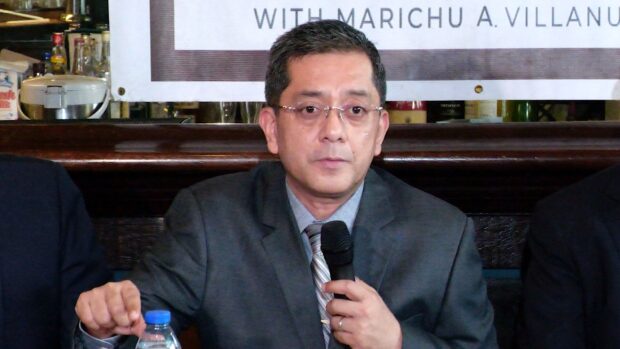Comelec decision out soon on provider of 2025 automated poll system

Commission on Elections chairman George Erwin Garcia —INQUIRER.net FILE PHOTO/Ryan Leagogo
The Commission on Elections (Comelec) will decide within the week if it will award the P18 billion contract for the lease of the automated election system to be used for next year’s midterm polls to the sole bidder, a joint venture led by South Korean firm Miru Systems Co. Ltd.
“The public will know within this week if we will grant this contract to this lone bidder based on the technical evaluation, postqualification assessment and other issues,” Comelec Chair George Garcia said at a press conference on Wednesday, right after Miru held a demonstration of its prototype voting machines at the poll body’s head office in Manila.
He did not disclose the recommendations made by the Comelec’s special bid and awards committee regarding the deal, saying only that all seven poll officials would decide whether to adopt or reject the recommendations.
Should the contract be awarded to Miru, the Comelec would proceed with negotiations, according to Garcia. Otherwise, there would be a negotiated procurement with another contractor, with the poll body under pressure to make its choice by the end of next month. Miru offered a bid of P17.9 billion, which was below the P18.8 billion approved budget for the lease of the Full Automation System with Transparency Audit/Count (FASTrAC).
The contract includes 110,000 automated counting machines equipped with Direct Recording Electronic (DRE) and Optical Mark Reader (OMR). The DRE is a new mode of touchscreen voting, while OMR, in which ballots are shaded, was used in previous elections.
Article continues after this advertisementCustomized voting machines
Miru has yet to produce its voting machines since these would be customized based on the terms of reference (TOR) set by the Comelec.
Article continues after this advertisementProduction would commence only once the poll body en banc awards the contract to the Korean company.
READ: Comelec approves TOR for fully automated elections
“Based on what I observed, they are compliant with the TOR. But we do not want to be complacent because it is usually during the mass production process that issues surface,” Comelec Commissioner Marlon Casquejo said.
Should Miru secure the contract, Casquejo guaranteed that the poll would monitor closely the production of the customized voting machines, which he estimated would take about six months.Earlier, lawmakers, election watchdogs and other stakeholders warned the Comelec against tapping Miru to be the new automated poll system provider considering its questionable track record, including fraud allegations during elections in Congo and Iraq in 2018.
Miru refuted this, saying it “designs, develops and manufactures secure electoral systems that are of international standard.”